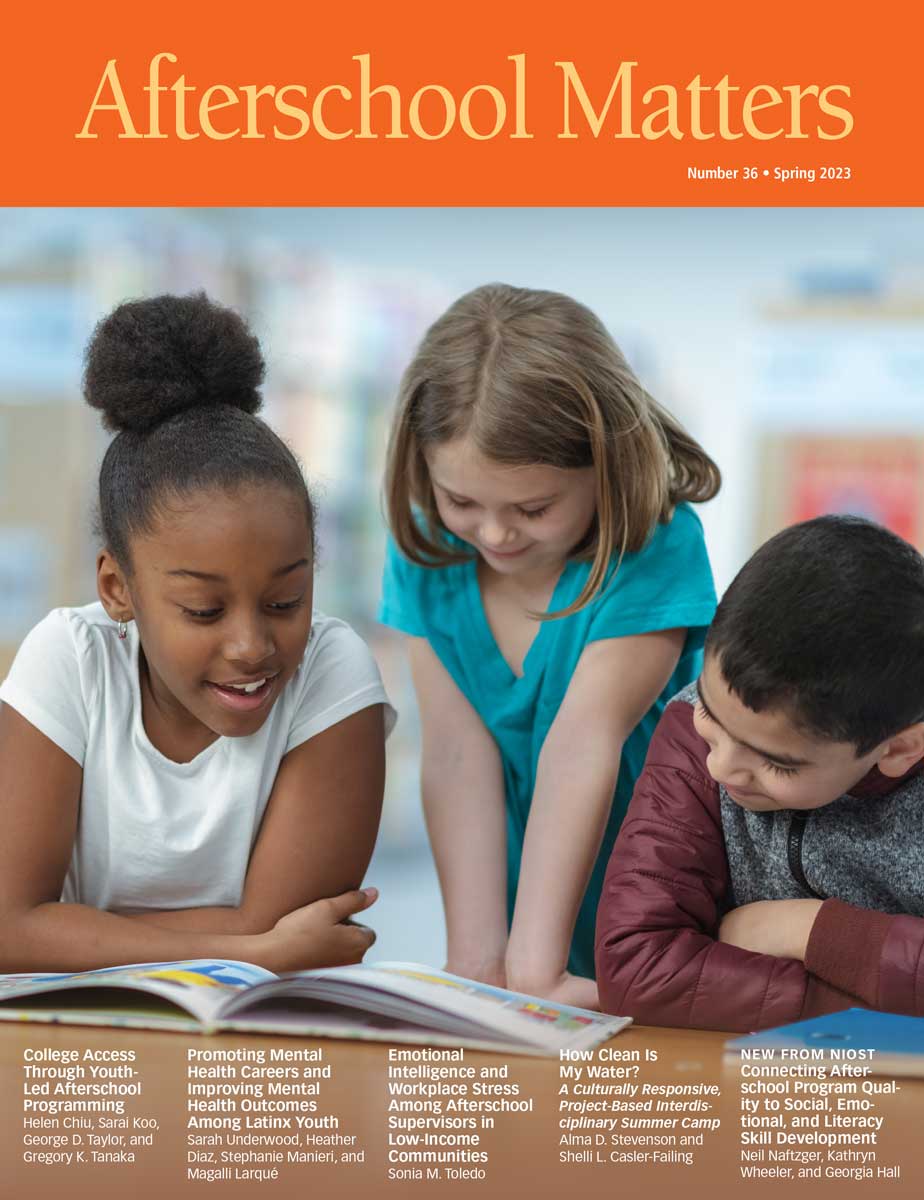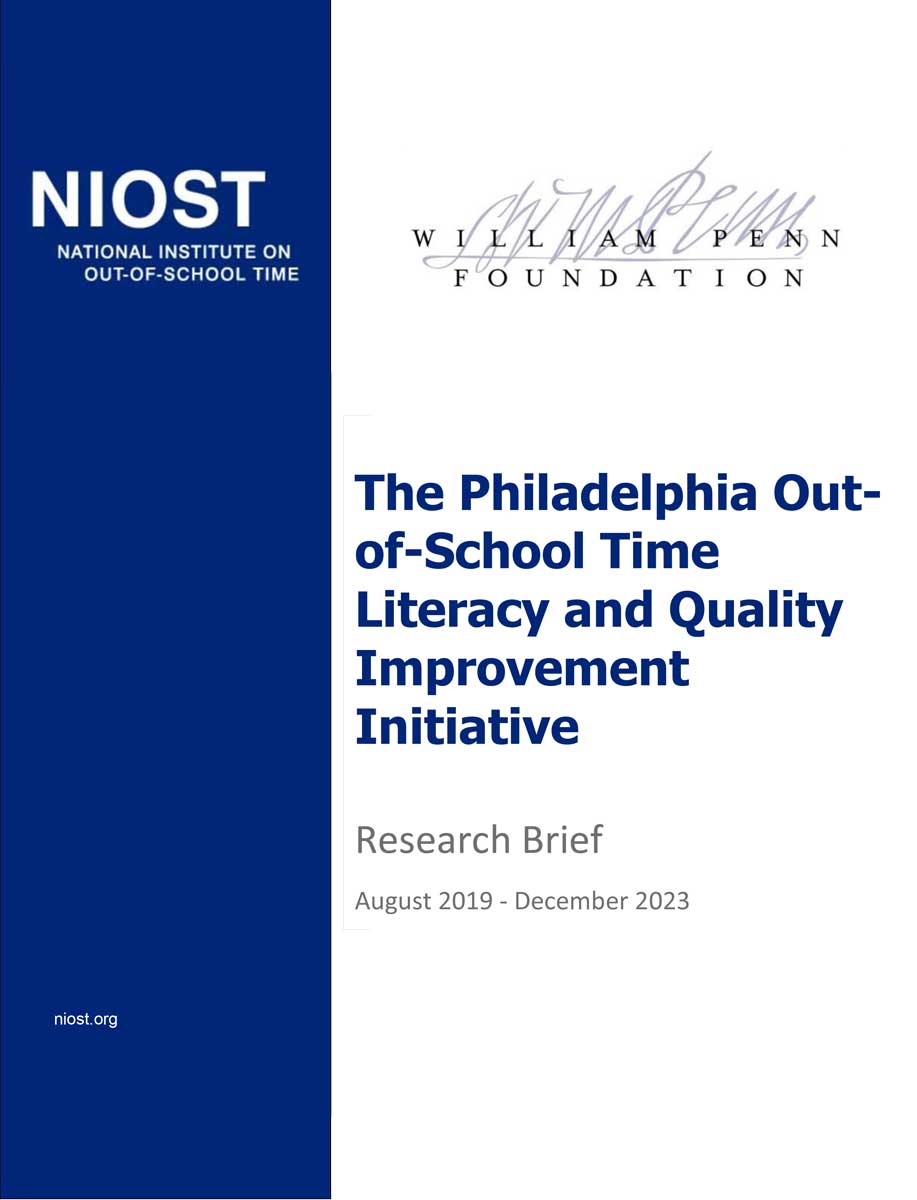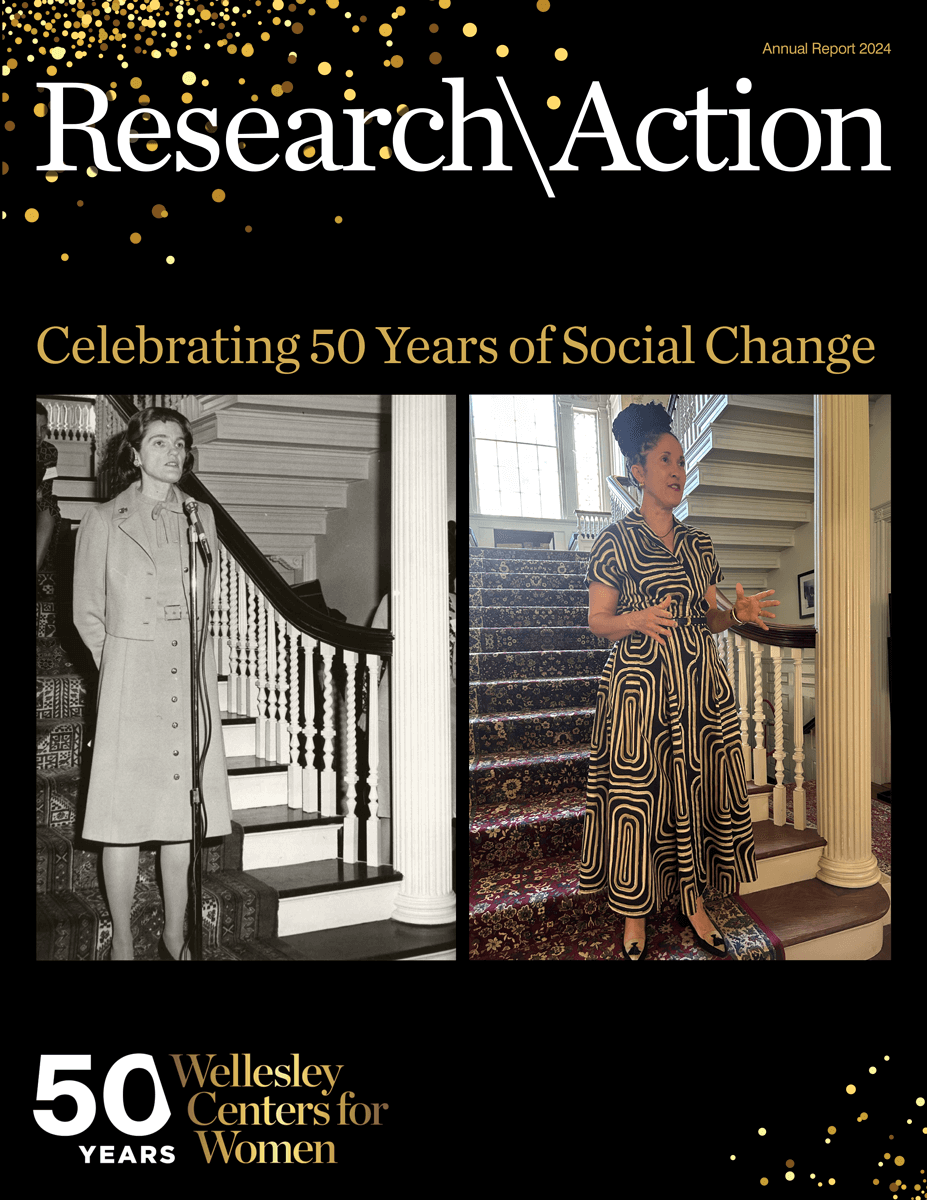Then: School-Age Childcare Project/National Institute on Out-of-School Time
 In 1978, the School-Age Childcare Project was founded at the Center for Research on Women with start-up funding from the Ford Foundation. The project brought national attention to the importance of out-of-school time programming as a strategy to help mothers enter and stay in the workforce. The project was later renamed the National Institute on Out-of-School Time (NIOST) and has continued to focus on how OST programs can enhance the work of schools, especially in high-need communities, to improve children’s wellbeing, social-emotional learning, academic achievement, and life prospects. NIOST has also contributed to the sector-wide development of the OST workforce.
In 1978, the School-Age Childcare Project was founded at the Center for Research on Women with start-up funding from the Ford Foundation. The project brought national attention to the importance of out-of-school time programming as a strategy to help mothers enter and stay in the workforce. The project was later renamed the National Institute on Out-of-School Time (NIOST) and has continued to focus on how OST programs can enhance the work of schools, especially in high-need communities, to improve children’s wellbeing, social-emotional learning, academic achievement, and life prospects. NIOST has also contributed to the sector-wide development of the OST workforce.
Michelle Seligson, Ed.M., Ellen S. Gannett, M.Ed., Joyce Shortt, M.Ed., Georgia Hall, Ph.D.
Now: For the Love of Literacy: NIOST Helps Build Literacy-Rich Environments
 Research overwhelmingly reveals that the early elementary years are critical for developing foundational literacy skills, yet grade-level literacy proficiency remains out of reach for many children in the United States. Out-of-school time (OST) programs can play an important role in building children’s literacy skills and helping to bridge achievement gaps—if those programs receive the right support.
Research overwhelmingly reveals that the early elementary years are critical for developing foundational literacy skills, yet grade-level literacy proficiency remains out of reach for many children in the United States. Out-of-school time (OST) programs can play an important role in building children’s literacy skills and helping to bridge achievement gaps—if those programs receive the right support.
Enter the National Institute on Out-of-School Time (NIOST), the city of Philadelphia, and the William Penn Foundation.
“There are many opportunities to build enthusiasm for literacy outside school hours,” said NIOST Director Georgia Hall, Ph.D. “Research shows that OST programs can support the development of and excitement about literacy in a setting where children feel comfortable.”
Between August 2019 and December 2023, NIOST partnered with OST programs in the Philadelphia Out-of-School Time Literacy and Quality Improvement Initiative (OSTLit), funded by the William Penn Foundation, to create and sustain literacy-rich environments (LREs). Their aim was to help programs embed literacy into everyday practices so children in kindergarten through third grade could engage with literacy activities in a new way.
NIOST approached this work from a program improvement perspective, meeting programs where they were in understanding the elements of LREs and then providing the necessary training, coaching, and instructional resources. Ongoing support and activities were designed to be predictable, easy-to-access, and meant to put light-touch literacy practices into action right away.
OST program staff participated in a monthly learning cycle that included a brief training video on a light-touch literacy practice, implementing the practice in their program, check-in meetings with a quality and/or literacy coach, and community of practice (CoP) meetings with peers.
Feedback from program staff was extremely positive. “I feel like I have a lot more knowledge of how to interact with youth and how I can better support their literacy skills, whether it be with homework, during our story time, or during our independent reading time,” said one participant. Another said, “This program was able to give me a lot of ideas, and knowing what I can do and how creative I can be, I’ve been more confident in terms of how creative lesson planning can be and how fun it can be.”
Through the city of Philadelphia and the William Penn Foundation’s broader LRE Initiative, various partners set out to provide access to literacy and playful learning in informal learning spaces such as bus stops, museums, libraries, medical offices, laundromats, playgrounds, and more. A nonprofit organization called The Learning Agenda gathered insights from the project in order to help others create city-wide approaches to address literacy, detailed in its brief, “Philadelphia as a Literacy-Rich Environment: Unlocking Potential and Creating Change.”
“We and our partners have gained incredible insight into how communities can create literacy-rich environments for their children,” said Hall. “We know what to do—now we just need to bring it to more children, more OST programs, more communities.”


